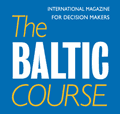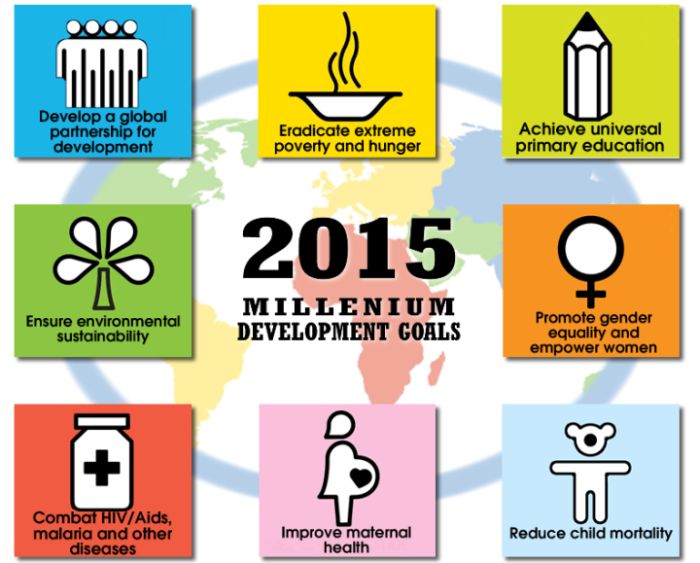
All rights reserved.
You may not copy, reproduce, republish, or otherwise use www.baltic-course.com content
in any way except for your own personal, non-commercial use.
Any other use of content requires the hyperlink to www.baltic-course.com.

Printed: 20.04.2024.
 PrintThe global agenda for sustainable development: tasks for the EU states
PrintThe global agenda for sustainable development: tasks for the EU states
Some 15 years ago, the Millennium summit took place. A quarter of the world's population was born after that Summit and 9 out of 10 kids now get to go to school. Many millions have come into a much better world than the generation before them. The Millennium Development Goals have made a difference, while helping people to unite against indifference.
The European Union helped to implement the Millennium Development Goals, MDGs in the efforts to assist the United Nations in achieving the main goal – social progress and a fairer future.

In his speech in New York on 27 September 2015, the Commission first Vice-President Frans Timmermans at the post-2015 Development Summit, “A World to Transform: the 2030 Agenda for Sustainable Development” underlined that “the next move is sustainable development”, i.e. making the new “MDGs 2030 Agenda” even more universal than the previous one.
Turning to sustainability
The MDGs showed that lack of development of some countries is a threat to all UN member states. However, the more important task is diverting unsustainable development on a global scale into the sustainable one. All member states are facing with the same global challenge that today we commit to overcome together.
The MDGs are for all countries, both rich and poor; these goals are comprehensive because they reflect the reality of today's world – and the way today's problems are daunting, complex, interlinked.
Vice-President Frans Timmermans said that for the very first time in the history of mankind, the boundaries of the planet were actually within sight: inequalities were increasing, social cohesion has been eroding and global competition for resources has been at an all-time high level.
Economic models that worked for many years in many states cannot be used any more in the future: global community has to redefine the basics of social progress, in particular, the relationships with nature.
Modern political economy must be creative; new economic policies must be fundamentally different from the old patters. “Rethinking of everything” is needed by all – people, companies, governments and international organisations argued Frans Timmermans.
The European message
All UN states must meet the MDGs 0.7% target for official development assistance. However that target is both urgent and complicated. The MDGs forces the states to create and develop new economies committed to play a different role. The MDGs are not just about development aid, they are as much about changes in political economy.
The EU’s message to the global community, argued Commission vice-president Frans Timmermans, is to “turn around national economies to make them circular”. That is, leaving behind the old patterns of “take-make-consume and dispose” into circular economy while mending societies' social fabric and integrating newcomers, both as political or economic refugees.
Nevertheless, the MDGs are as well about clean air, water and oceans; about more resilient cities, that are healthy, inclusive and safe.
The EU’s strategy is also about tackling food waste: a third of the food worldwide is thrown away which is a shocking revelation. And it's about the EU’s collective action to keep the global temperature rise below 2 degrees Celsius.
These are not impossible goals, argued Commission vice-president: “we have innovation on our side to find solutions if we have the will to ac”.
The EU-28 states are determined to do this jointly while being fully engaged with the UN in experience sharing, capacity building, and progress monitoring.
The MDGs are aimed at shaping the states’ development policies while infusing these policies abroad and at home. Ultimately, this is all about governance and about inclusiveness: societies will only accept transformation if people feel their voices have been heard.
Besides, it's about breaking out of silos: sustainable development is not just an economic or social challenge; it is neither only an environmental problem. MDGs unite not only all three, they are to streamline the states’ efforts on such directions as the need to reinforce rather than undermine one another, concluded vice-president Frans Timmermans.
Reference: European Commission, Speech of First Vice-President Frans Timmermans at the post-2015 Development Summit, “A World to Transform: the 2030 Agenda for Sustainable Development”, New York, 27 September 2015. In:
http://europa.eu/rapid/press-release_SPEECH-15-5726_en.htm?locale=en